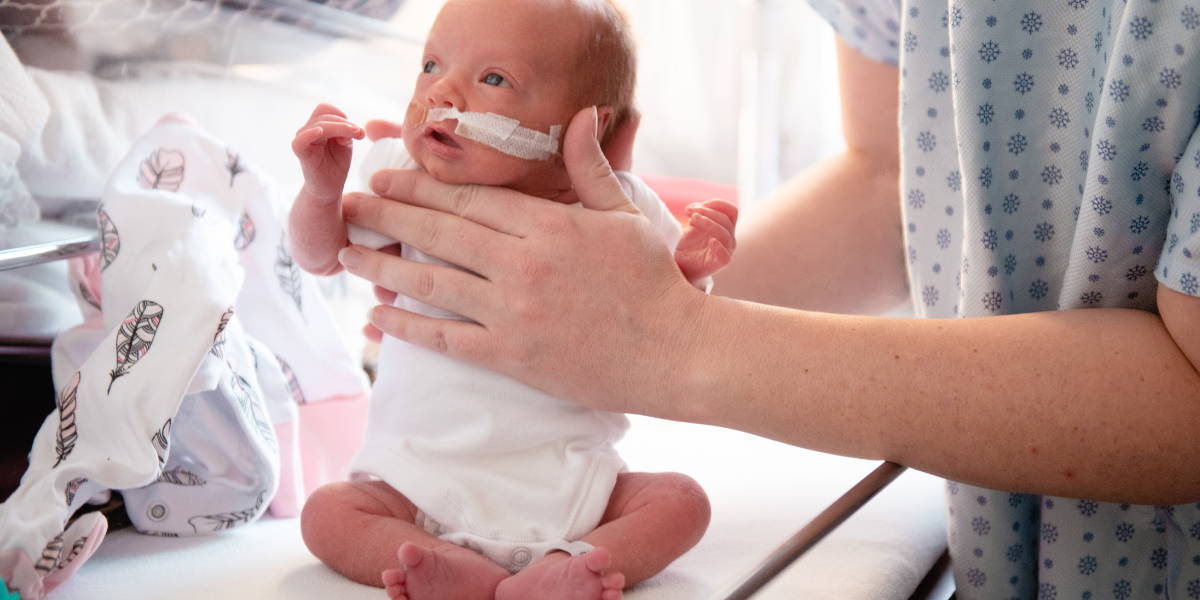
In recognition of International Day of Women and Girls in Science, we are profiling women researchers who are doing important work in women’s health. We asked these researchers a few questions including Dr. Jessica Liauw, recipient of the Maternal Fetal Medicine Fellowship.
Tell us about yourself.
I am a perinatologist or specialist in Maternal Fetal Medicine, a subspecialty of Obstetrics and Gynecology. My work is focused on helping women and families navigate high-risk pregnancies and complications, such as having a baby that doesn’t grow as much as expected, or a baby that is born too early. My research is about figuring out how to best detect and manage pregnancies at risk of having these and other complications, and how to best communicate information so that patients can make treatment decisions that are right for them.
Provide a description of your latest research project.
I currently have three main areas of research: 1) evaluating the use of fetal growth charts and figuring out which one is best to use in BC, 2) evaluating whether a decision support tool for antenatal steroids can improve patient counselling for women at risk of having a preterm birth, and 3) evaluating how healthcare governance impacts reproductive health outcomes for women in prison in BC.
Why did you decide to focus your work on women’s health research?
Improving women’s health has been the focus of my clinical work for the last 10 years. During this time I have had the privilege of caring for women who were faced with health challenges that were specific to women, but which I realized had profound impacts on individuals, their children, their families and their communities as a whole. Through this work I learned the importance of focusing research in this area to continue to improve clinical care as well as advocate for services that promote women’s health more broadly.
What are your thoughts on the bias in women’s health research showcased in The Research Divide, including:
- Women’s health research is funded less often, for shorter terms, and lower funding amounts.
- Women researchers are less likely to receive funding than men
- Women academics have lower salaries, receive less institutional funding opportunities, and are underrepresented in senior positions.
- Women are less visible in academia (publications, symposia, conferences, research prizes)
To me, this bias in women’s health research is a reflection of the gender bias faced by women in society overall, which for many women may intersect other biases, e.g. those based on race or class. Decreased funding and underrepresentation of women researchers is a problem we need to fix, but it is even more concerning that this reflects a wider gender inequity that poses serious threats to women’s health and well-being worldwide. As healthcare providers and researchers we have an obligation to work towards reducing these disparities.
What impact do you intend to have on women’s health with your research?
My goal is to promote access to high-quality, evidence-based healthcare in Obstetrics and Gynecology for all women. Research is a crucial part of this because there are many unanswered questions about how we should be managing specific conditions and health services. For example, in one of my projects I intend to figure out how we, as obstetricians, can best balance and communicate potential harms and benefits of a treatment to help our patients make a decision about whether or not to receive this treatment when they are at risk of preterm birth. This type of evidence could empower women and promote achieving optimal health outcomes.
We live in a world with many competing priorities right now. What excites you most about having others recognize your research as a valuable investment?
I feel fortunate to be able to rigorously answer questions that directly impact the healthcare my colleagues and I provide. This research is inspiring because it answers the questions that matter to patients, clinicians and policy-makers. I am thankful to our supporters who make this work possible!
You can double your impact this February and give researchers like Dr. Liauw the support they deserve to study the unique health needs of women. From now until February 28, your gifts to the Women’s Health Research Fund will be matched by the Auxiliary to BC Women’s Hospital + Health Centre, up to $27,500. This could mean two fully-funded Catalyst Grant awards to kick-start the research process and support the next generation of women’s health researchers in the province.
BC Women’s Health Foundation is BC’s largest non-profit organization dedicated to advancing the full spectrum of women’s health. The information shared is intended to educate, inform, and point readers to credible sources. It is not intended to substitute professional medical advice.
-
Lauren’s Story
Through the loss of a pregnancy and the birth of a baby, the team at BC Women’s provided the emotional suppo...
Read more -
Making Strides For Women In Midlife
Women deserve care that is evidence-based and takes a lifespan approach. Women in midlife can experience a wid...
Read more -
Unlocking the future for babies with brain injuries in the BC Women’s NICU
For parents with a newborn in the Neonatal Intensive Care Unit (NICU), one of the hardest questions to face is...
Read more



